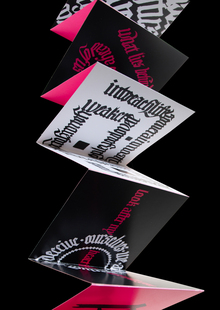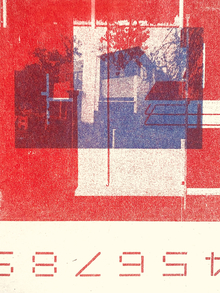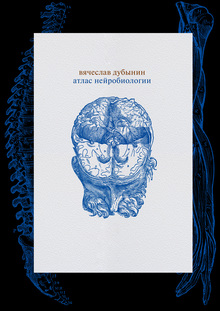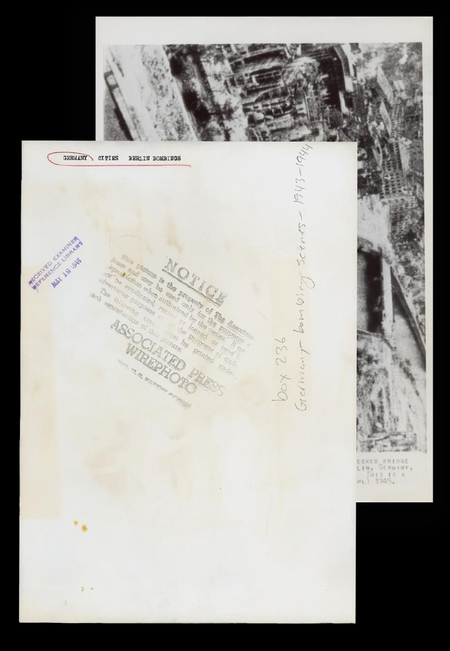
Surviving the Air War
The book focuses on the bombing of German cities at the time of World War II. It’s a cultural-historic analysis of the people’s experience of military trauma, collective responsibility, and the personal processing of traumatic experiences after a disaster.
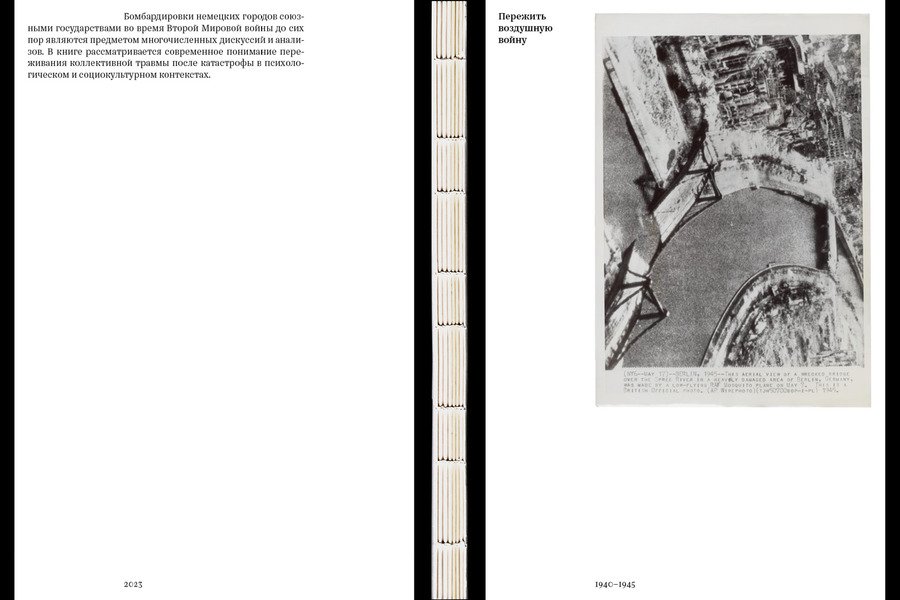
A card from the archive of the British Museum of WMW with a photograph of the destroyed bridge in Berlin in 1945 was placed on the cover.
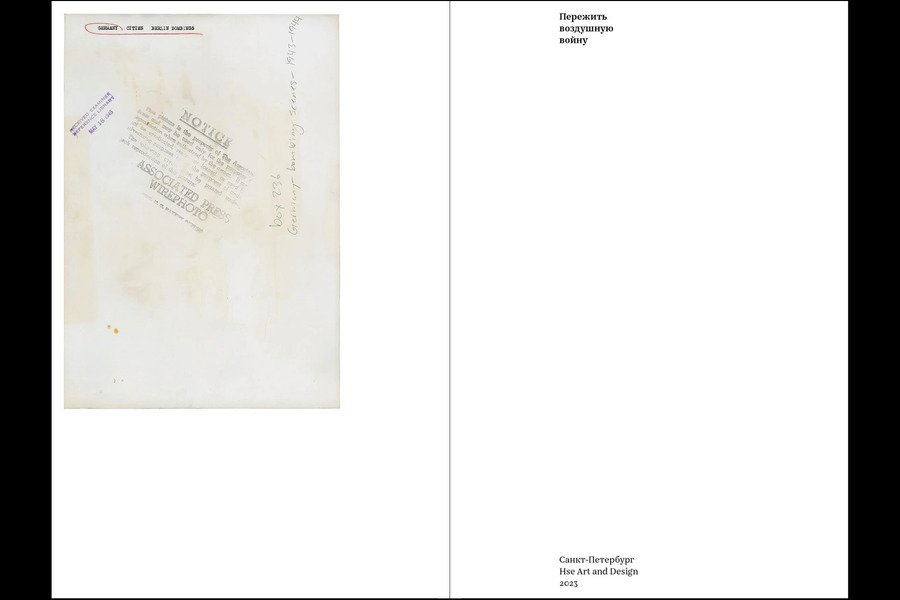
The negotiable side of the card is placed on the front lines.

The narrative is divided into three parts: an overview article, a photo block, and an analytical article.
Part 1
The first part of the book is devoted to an article entitled <laco; Moral destruction» 2015 — a simple contemporary story about the bombarding of German cities.
The paper should be sent to the standard format of the science-pop text — a symmetrical composition and marginalises on the sides.
However, if material so requires, it can break its ' quo; tradition ' raquo; and the flexibility inherent in today ' s approach.
Part 2
Only in the second part shows a photo chronicle of events, about which was said earlier and will be spoken later in a book. This was done and to follow the idea of silence of a tragic past, and to be more conscious of handling a material of such a frightening nature.
The narrative must be monotonous, manifestly excluded, signatures rarely explain what is happening, leaving the right to be analysed by the reader.
Part 3
The third and the main part of the book is an article by B. G. Zebalda ' laquo; Aerial War and Literary» — a modern view of the problem based on a large number of references to analyses of past years.
The only illustrative material in this part is the cover of the books to which the author refers.
At the end of these books, a chronological series is drawn up to demonstrate the post-war calm in the literature and the subsequent surge of interest in the subject.
